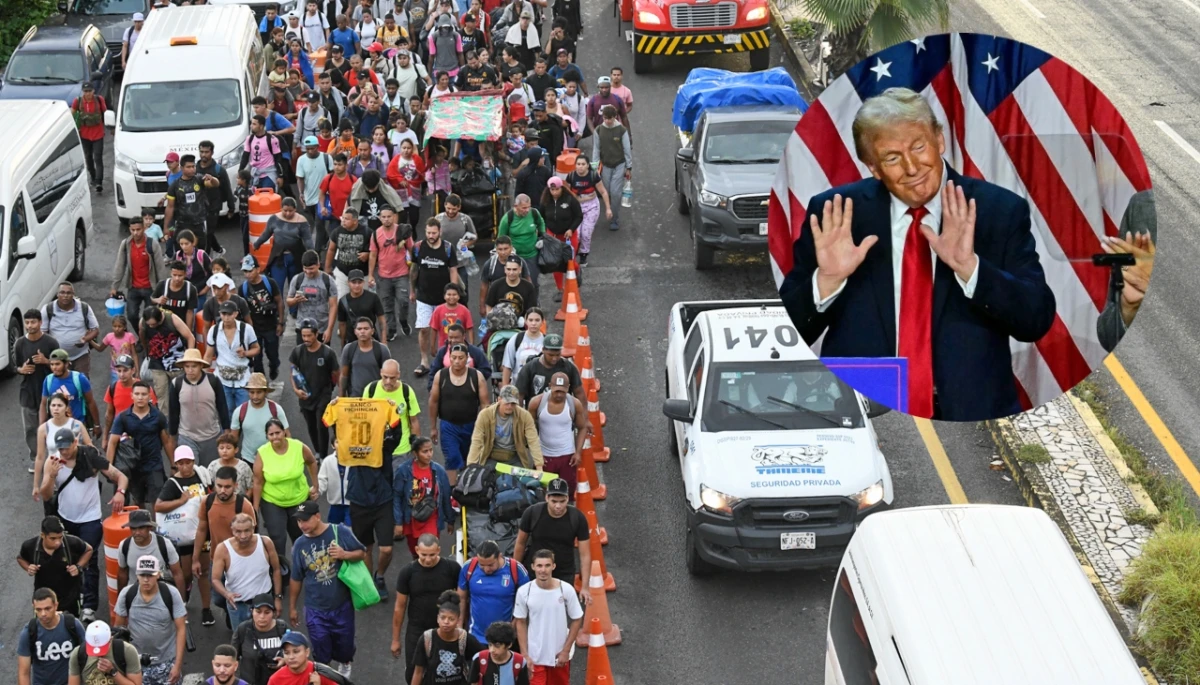
The president-elect of the United States, Donald Trump, has promised “mass deportations” of undocumented migrants living in the country. The Republican has indicated that, once in power, he will use federal power – including an 18th century law – to detain and deport those who are in the country.
However, To carry out an operation at the level of what he has planned (going after the more than 11 million undocumented people) he will need to rely on local and state governments and police departments..
(Also read: State of emergency and Army: this will be Donald Trump’s mass deportation of migrants)
The attitude of the different regions towards migration, therefore, will be key to slowing down or accelerating their plans, according to experts and activists consulted by EFE.
Caracol News
Organizations in favor of migrant rights in different states of the country are already preparing to face – and resist – a second Republican presidency.
New York, a sanctuary city “without plans”
In New York, where more than half a million undocumented migrants live, its status as a sanctuary city – which does not cooperate with Immigration authorities – does not exempt them from raids by the Immigration and Customs Enforcement Service (ICE).
Given the arrival of the Trump Administration, the New York mayor, Democrat Eric Adams, has already said that he will comply with the provisions of the sanctuary city statute, which prohibits his agencies from sharing information about these residents, although he has also made it clear since He has long wanted changes to this policy that dates back to late 1989.
The statute provides exceptions for migrants who have recent convictions for specific violent crimes and those who are on the federal terrorist watch list. If ICE obtains a warrant against a person, they proceed with it.
(Also read: Cryptocurrency sector awaits its golden age with Trump’s return to the White House: why?
Adams has spoken out against mass deportations but has admitted to having no concrete plans to confront the promised actions against immigrants. The mayor has limited himself to pointing out that his commissioner of the Office of Immigrant Affairs, Manuel Castro, has met with organizations to coordinate “based on the responses that will come with the new Administration.”.
Following the results of the November 5 election, local and national organizations have immediately held meetings to discuss their next steps.
Groups like the Immigrant Coalition have vowed to fight Trump’s proposals. “We stopped it before and we will stop it again,” said the coalition, while Se Hace Camino stated that it was willing to face “everything” that comes their way.”

For their part, organizations such as the Hispanic Federation and United We Dream have begun to give workshops on the rights that migrants have and to “prepare them for any scenario.”
Texas, an allied state
Texas is the second state with the largest number of undocumented migrants in the country, behind California, with around 1.6 million people, according to data from the Pew Research Center.
The state government, led by Trump ally Greg Abbott, has invested million dollars in an initiative called Operation Lone Star, focused on militarizing the border and stopping the entry of migrants and asylum seekers.
Through Lone Star, Texas has mobilized hundreds of National Guard agents to the border area, including troops from 14 other states with Republican governments.
The state legislature, also controlled by Trump’s party, in turn approved a controversial law that gave local authorities the power to detain and deport those suspected of being migrants in an irregular situation.
(Read also: Donald Trump: with appointments he announced, what can be expected from his new mandate in the US?
This regulation has not gone into effect because a number of organizations, including the ACLU, filed lawsuits to stop it and an appeals court ruling on the matter is still pending.
Texas, Kassandra González, lawyer for the organization Texas Civil Right Project, tells EFE, “has been using rhetoric about migrants calling them invaders”.
“We feel very concerned (with the arrival of Trump), we are concerned that there could be massive separation of families and the use of racial profiling to detain people” both in border areas and within the state,” says the activist.
About 5.6 million people in the state live in “mixed status” families, where at least one member is not a U.S. citizen, and civil rights advocates fear that a mass deportation plan would make the state “a least safe place for everyone.
“Trump is not limited by what the law says,” adds Maribel Hernández, an ACLU lawyer, who filed more than 400 lawsuits against the Government during his first term (2017-2021). “He does what he’s going to do, but we’re obviously going to go to court and sue.”
Source: https://www.noticiascaracol.com/mundo/deportacion-masiva-de-trump-el-factor-clave-para-acelerar-el-plan-contra-migrantes-indocumentados-cb20


